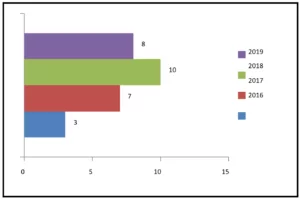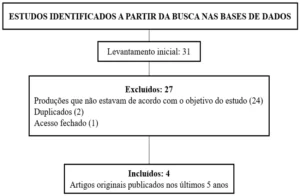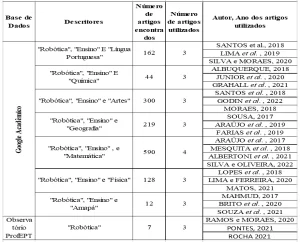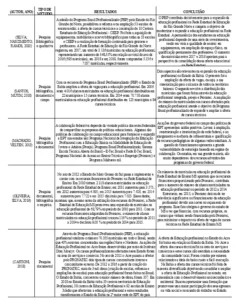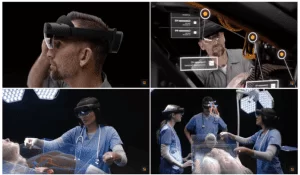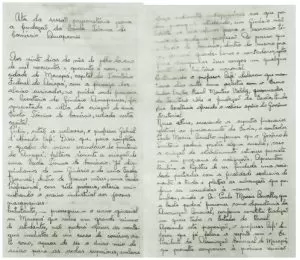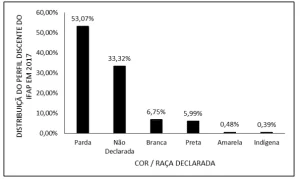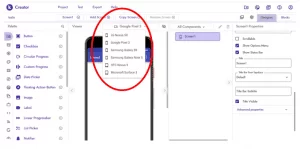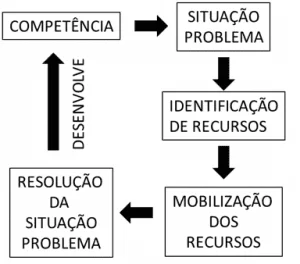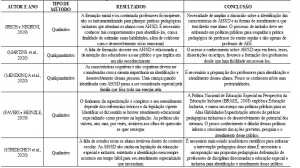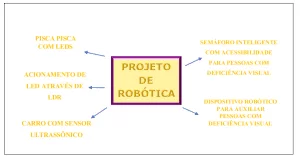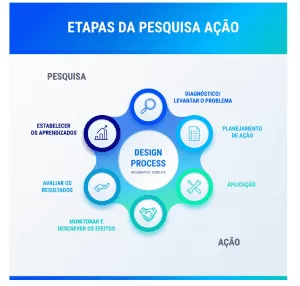ORIGINAL ARTICLE
NOGUEIRA, Francinete Pessoa [1], NORONHA, Jucineide Campos [2], NOGUEIRA JUNIOR, Carlos Alberto Almeida [3], PESSOA, Andréa Printes Nogueira [4]
NOGUEIRA, Francinete Pessoa. Planning and curriculum: Importance and contribution in the educational process. Revista Científica Multidisciplinar Núcleo do Conhecimento. Year 05, Ed. 11, Vol. 20, pp. 108-116. November 2020. ISSN: 2448-0959, Access link: https://www.nucleodoconhecimento.com.br/education/importance-and-contribution
SUMMARY
This article presents reflections on the importance of the curriculum and the act of planning, with emphasis on the objectives of explaining how the method of planning takes place, given the complexity and difficulties encountered today and, in the absence of explanation regarding the purposes of teaching that currently permeates renovations, transformations and advances. It is proposed to attribute contributions, from pedagogical planning, on what is educational curriculum and planning, contextualized in bibliographic research on what is curriculum and how planning works, in order to identify the importance of the proposed theme. The preparation of this article was through bibliographic research and readings, in order to improve knowledge related to the theme in question. And in line with the readings performed, it is observed that the actions to be developed in the curriculum will only be successful when it is in agreement with the planning. Therefore, this work aims to show the bases that consider the importance of planning and curriculum through expressive actions that proceed as a method of planning and school curriculum. And explain how the technique of planning in the face of the complexity of the difficulties encountered in the day-to-day and the absence of clarification about its purpose in the face of the teaching and learning process, which is often in constant change, renewal.
Keywords: Educational curriculum, planning, education.
1. INTRODUCTION
To analyze the curriculum and planning in the educational conjuncture, it is essential to understand such situations, and the meaning of these processes. Therefore, one must understand immediately, what is planning? and what is curriculum? In the opportunity, it is understood that planning is an instrument that helps the pedagogical process of the teacher, enabling the organization of methods related to the contents of the school curriculum and enables elements for success in teaching-learning.
In this aspect, planning is elementary, but it becomes difficult in the attributions of the teacher, who needs a knowledge-based study, to develop the educational practice. In addition, planning is of great importance because it allows to know the reality of the context to which it intends to be destined, and then carry out the organization of the essential elements for pedagogical doing.
In view of this, school planning is defended as a priority of group organization, which involves all segments of education such as: teachers from all areas, students, administrative and the surrounding community. Since isolated decisions cannot be pointed out, therefore, it is necessary to discuss to set goals, goals, goals, values, attitudes and deliberate the possible ordinary problems of the school. So the school becomes democratic.
However, in the absence of the dialogue necessary for planning improvement, some teachers have difficulties in developing their pedagogical activities. Similarly, the lack of continuous training stands out, so that one can understand the veracity of the importance of the act of planning and the updated pedagogical methods.
The curriculum aims to guide the teacher’s activities in pedagogical practice, taking into account school actions, among them, planning, evaluation, and also other activities developed by the teacher in the classroom. For these achievements, the teacher should know how to direct the elaboration of the curriculum, determining the primordial contents.
Therefore, in order to plan the curriculum, in order to develop pedagogical methods, it is necessary to pay attention to the conditions of teaching both inside and outside the school environment, taking into account that the role to be effected by the teacher is to plan, or to predict learning in teaching, and not exclusively disseminate the objectives to be analyzed or studied by students. Finally, it is necessary that there is a methodological organization of the contents to be developed in the classroom, in order to enable elements for the success of the teaching and learning process.
2. BIBLIOGRAPHIC REVIEW
2.1 EDUCATIONAL PLANNING
Educational planning is seen as of fundamental importance, especially for the construction of information, as well as in access to meaningful learning in the school environment. Luckesi (2011, p. 125), states that: “Planning means setting goals, and seeking ways to achieve them.” In agreement with the author, it is necessary to keep in mind that, before planning, one must direct the objectives that one intends to achieve.
In fact, in the various concepts of planning, the teacher is the main responsible for the process. Thus, according to Moretto (2007, p. 52), “At the same time that the teacher organizes the choice of contents, he plans pedagogical strategies that favor a meaningful learning on the part of the students”.
Still in moretto’s contribution (1997, pg. 9) “The planning is the result of a school and education project dreamed and conceived by the school collective. It is necessary to seek a proposal for planning pedagogical actions.” In these actions, the school goals are outlined, visualizing not only the school center, but also the community served.
In addition to the aforementioned, circumstances are provided with the direction of teachers, which for Oliveira (2007, pg. 21) “[…] the act of planning requires basic aspects to be considered”. Therefore, they implement better performances aimed at learning the student. As being:
It is the general planning that involves the process of reflection, decisions about the organization, functioning and pedagogical proposal of the institution. It is a process of organizing and coordinating the action of teachers. It articulates the school activity and the social context of the school. It is the planning that defines the purposes of pedagogical work. (PCNs BRASIL,1997, pg. 42).
In this context, it is observed that planning is a procedure to enable guidelines and decisions on the praxis of human resources and material resources. According to Libâneo (1994, p.22), planning is of great importance because it is: “A process of rationalization, organization and coordination of teaching action, articulating school activity and the problem of the social context”. Thus, it contributes in a relevant way to the achievement of the objectives, by performing in a timely manner the steps defined, therefore, presents the positive results.
Also in the contribution of Libâneo (2001, p. 225), the planning “[…] It is the most comprehensive document; expresses general guidelines that summarise, on the one hand, the links of the pedagogical project of the school with the teaching plans themselves”. So, planning is every activity that encompasses the technique of imagination, decisions about the organization, functioning and pedagogical opinion of the school institution. It is necessary to understand that:
Planning the educational process is planning the undefined, because education is not the process, whose results can be fully predefined, determined or pre-chosen, as if they were products arising from a purely mechanical and unthinkable action. We must therefore plan the educational action for man by not imposing guidelines that unto him. By allowing education to help man to be the creator of his story. (MENEGOLA and SANT’ANNA, 2001, p. 25)
On the other hand, in so that planning is not seen only as a representation, and its process is not interpreted as something optional, and consequently unsuccessful, some criteria must be taken into account. The following stand out:
Objectives: this is all that the student should be able to demonstrate as a result of their learning in the activities related to the disciplines. It is important to understand that:
Expressing the objective has the function, above all, of enabling the re-signification of practice. Of course, one must seek the greatest possible precision in explaining where one wants to go; however, the purposes become clearer with the development of the walk, in the confrontation with reality, and it is necessary, then, its reformulation. Thus, we understand that the elaboration of the purposes is a dynamic process, requiring much attention to the historical unfolding. (MORETTO, 2007, p. 52)
As described by the author, it is notorious that when formulating objectives should be taken into mind the context of what is intended to be achieved, if in the course of the application presents ineffectiveness and dissatisfaction of the process, it will be necessary to reorganize or a new planning. Therefore, such designs are indispensable, so that a significant effect can be achieved in the pre-established goal.
Methodology: The methodology is configured to identify the direction to be taken in the didactic procedure, question and prioritize the experiences before teaching, in order to achieve learning, and how each programmatic content will be worked. For it is it that offers all the appropriate conditions for the performance of work in classrooms.
[…] these are activities, procedures, methods, techniques and teaching modalities, selected for the purpose of facilitating learning. They are, properly, the various ways of organizing the external conditions most appropriate to the promotion of learning (MENEGOLLA and SANT’ANNA, 2001, p.90).
However, promoting learning is based on interconnected systems, working together, which fits the collective will for a single objective, teaching-learning. Based on this commitment and based on the flexibility of the methodology, success in learning is promoted.
Evaluation: follows the entire teaching-learning process, is not only directed to tests and/or tests, but is seen as feedback between the teacher and the student. According to Masetto (1997, p. 4), “the evaluation process is a situation often fraught with threat, pressure or terror.”
Following these planning criteria, the teacher evaluates himself/ her in order to improve his/her work practice in the classroom, effectively improving his educational process and, as a contribution to the school environment, awakens the improvement in the learning of his students.
2.2 EDUCATIONAL CURRICULUM
The Curriculum is a pedagogical plan that directs the work, as well as the method of instruction and learning of the students. It is an active action, where all school activities are determined. In addition, it is in this document that the planning of the entire school life of the students is implemented, establishing instruments that lead to the demands of the educational institution and all those involved in the process, both the faculty and the student body.
Thus, the curriculum aims to guide the teacher’s activities in the pedagogical techniques in the classroom. Faced with the issue,
Curriculum is a social construction of knowledge, presupposing the systematization of the means for this construction to be effective; the transmission of historically produced knowledge and the ways of assimilating it, therefore, production, transmission and assimilation are processes that make up a methodology of collective construction of school knowledge, that is, the curriculum itself. (VEIGA, 2002, p.7)
Thus, curricular planning is a multidisciplinary work that benefits the teaching process, because it idealizes all the activities that the student will perform under the guidance of the school to achieve the ends of education. It must be organised individually by each educational establishment. However, according to Menegola and Sant’anna (2001, p. 25), “Planning the educational process is planning the indefinite, because education is not the process, the results of which can be totally […] determined or pre-chosen, as if they were products arising from a purely mechanical and unthinkable action”.
Then, for the proper planning of the school curriculum, the participation of individuals who guide the educational process should be determined, considering the management, pedagogical, technical and administrative team. Thus, together they can deliberate on the objectives, contents, methodologies, as well as evaluative development.
It is concomitant that the planning process in the learning environment is thought of as a team, intending significant actions. For Menegola and Sant’anna (2001, p. 25) “We must therefore plan the educational action for man not imposing guidelines that unto him. By thereby enabling education to help man to be the creator of his history.”
Thus, the curriculum guidelines seek to address relevant generating themes, where they will build the programmatic content necessary for educational procedures, which aims to meet all students’ needs. In this approach, it is highlighted that:
In any case, what the teacher should distinguish, when elaborating a curriculum, are the significant, functional contents, content slacking in meaning and functionality and mere information without another objective that is to be memorized for as long as possible. (CASTRO, 1987, p.53).
The well-organized curriculum is the basis of education, it is observed that it must work knowledge in an organized and systematized way, being accepted by all collectively and selectively as empirical knowledge of the student.
In summary, in the educational trajectory, much is faced with the successes and failures, but it is before the discussion for the common good that the right is given to all those responsible, directly or indirectly, to engage in the organization of the curriculum, to awaken to the true practice of teaching-learning, and consequently, to the reduction of school failure.
FINAL CONSIDERATIONS
In view of the study, a significant contribution was made in relation to the theme, and here it is important to emphasize that the planning needs to be based on the implementation of all the activities to be done, but there are many obstacles encountered by teachers in the assembly of the same and during its application. It is an indispensable instrument, it should be evaluated during its production, in the application with the objective purposes and, especially in the evaluation in the face of the results obtained.
The planning activities may not be carried out successfully, but the admirable thing is that the teacher commits to make adjustments and redirect, systematizing with the school group, in order to share methodological experiences. With this, implement improvements in their pedagogical skills, in view, the student’s learning.
The evaluation of the student’s learning fits into the context of the situations necessary for the learning environment, as an instrument that aims to reflect on the degree of conception and understanding of the student in the face of what is passed on to him. Although, today it is still perceived to be formal exams, such as tests and tests, the most frequent instruments in daily school life, used most of the time to show inequality, that is, the student who learned and the student who did not learn; the student who knows, in a degree of superiority to the one who has difficulty in learning.
However, it is evident that the result of the evaluation applied in the teaching-learning process is the reflection of the teacher’s work, needing a self-assessment, according to the performance that the class presents.
Thus, when developing the curriculum, it includes the configuration of a document that aims to collaborate with the learning of all students, determining the opinion and certain reflections to enhance the disciplines to be contemplated.
In view of the study conducted, it is noted that the evidence on curriculum, present both in theory and in pedagogical practice, leads us to think and rethink, that curricula are not only contents finished to be simply applied to students, but should be discussed to meet the real needs experienced by all those involved in the school context.
Therefore, curriculum and planning must always be interconnected, so that there is action-reflection-action, in order to corroborate the success of the whole desired process, and thus, contemplate with significance the main purpose, the students’ learning.
REFERENCES
BRASIL: PARÂMETROS CURRICULARES NACIONAIS: Apresentação dos temas transversais, ética. Secretaria da Educação Fundamental. –Brasília: MEC/SEF, 1997 B. 147 Pg. V. 7.
CASTRO, Amélia Domingues de. Didática para escola de 1º e 2º graus. 9ª ed. São Paulo: Pioneira, 1987.
LUCKESI, C. C. Avaliação da aprendizagem: Componente do ato pedagógico. São Paulo: Cortez, 2011.
LIBÂNEO, José Carlos, Didática. São Paulo. Editora Cortez. 1994.
__________, Organização e gestão escolar: teoria e prática. 4. ed. Goiânia: Editora alternativa, 2001.
MENEGOLLA e SANT’ANA, Maximiliano e Ilza Martins. Porque Planejar? Como Planejar? Currículo e Área-Aula. 11º Ed. Editora Vozes. Petrópolis. 2001.
OLIVEIRA, D. de A. Gestão Democrática da Educação: Desafios Contemporâneos. 7ª edição. Petrópolis, RJ. Editora Vozes: 2007.
MORETTO, Vasco Pedro. Planejamento: planejando a educação para o desenvolvimento de competências. Petrópolis, RJ: Vozes, 2007.
VEIGA-NETO, Alfredo. Currículo e telemática. Currículo, práticas pedagógicas e identidades. Braga: Porto Editora, p. 53-64, 2002
[1] Graduated in Mathematics and Specialist in Mathematics Teaching and Management and Pedagogical Coordination and Teaching of Higher Education SEDUC; Corporacion Universitaria De Humanidades E Ciencias Sociales De Chile Master’s Degree in Educational Sciences.
[2] Graduated in letters and specialization in Methodology of Portuguese Language Teaching and Specialization in media in Education; Corporacion Universitaria De Humanidades E Ciencias Sociales De Chile Master’s Degree in Educational Sciences.
[3] Bachelor of Tourism.
[4] Graduated in Physics; Corporacion Universitaria De Humanidades E Ciencias Sociales De Chile. Master’s degree in Educational Sciences.
Submitted: November, 2020.
Approved: November, 2020.

